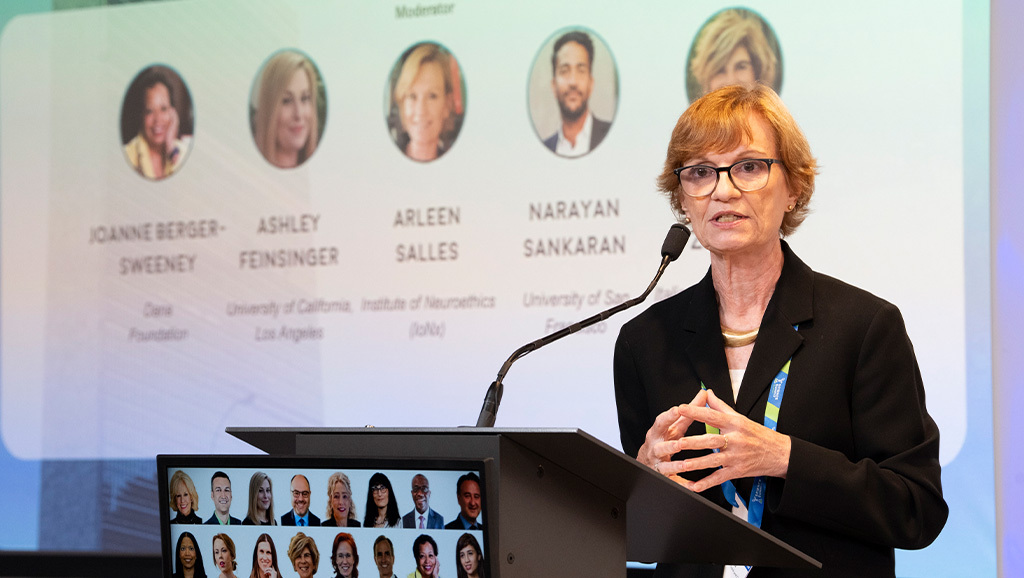News & Insights
Dana Foundation Accepting Proposals for Rapid Response Bridge Funding

Where do we want neuroscience to take us, how far is too far, and where can it most benefit our lives? These fundamental and deeply challenging questions are critical to ask, as the field of neuroscience flourishes in an exciting renaissance period. A huge driver of this innovation in neuroscience for the past decade has been federal funding awarded through the NIH BRAIN Initiative, which has supported nearly 1,800 researchers working towards the goal of revolutionizing our understanding of the human brain by accelerating the development and application of innovative neurotechnologies.
The federal investment in the work of these researchers has paid off in spades, delivering incredible advances in our understanding of how the human brain works and how to treat devastating conditions including stroke, obsessive-compulsive disorder, binge eating disorder, traumatic brain injury, post-traumatic stress disorder, substance use disorder, and depression.
Before joining the Dana Foundation in early 2022, I worked at the National Institutes of Health as part of the BRAIN Initiative team since the initiative was launched in 2013. As a neuroscientist, it was a thrill and an honor to support incredible research that would have seemed impossible even just a few years before. I also was fortunate that my civil service afforded me the opportunity to build the neuroethics component of the NIH BRAIN Initiative, in partnership with dedicated colleagues at the NIH.
The neuroethics strategy for the NIH BRAIN Initiative emphasizes proactive, ongoing assessment of the neuroethical implications of the development and application of BRAIN-funded neurotechnologies. But how do we know what those implications are, and how do we “assess” them? A key answer lies in research. In 2017, the NIH BRAIN Initiative awarded four R01 grants to support neuroethics research. From that initial seed, the NIH BRAIN Initiative neuroethics research program has grown to support dozens of scholars and trainees around the country (and beyond), working alongside neuroscience and neurotechnology experts on critical issues such as:
- Post-trial access, clinical care, and psychosocial support for deep brain stimulation (DBS) trial participants
- Understanding and enhancing family and researcher support in neural device trials
- Developing a toolkit to foster ethical neurotechnology academia-industry partnerships
- Anticipating ethical challenges and disparities in the dissemination of novel neurotechnologies
- Ethical decision-making regarding the use of pediatric DBS
The landscape for work on the ethical, legal, and societal implications of neuroscience, and for science at large, has changed dramatically this year. Now that federal FY2025 has come to a close, it is disheartening to share that the NIH BRAIN Initiative made no new neuroethics awards in FY2025. Importantly, this is not due to a lack of good ideas—rather, meritorious FY25 neuroethics applications weren’t awarded due to agency operational issues. Further, NIH currently has no active neuroethics funding opportunities. More broadly, the US science enterprise is experiencing intense challenges in funding that threaten to impede even basic research.
I am deeply concerned about the sustainability of work on the ethical, legal, and societal implications of neuroscience, the importance of which only grows as neuroscience speeds ahead and increasingly intersects with AI, delivering more powerful tools and insights. These scientific and technological advancements are outpacing the public dialogue about potential uses and misuses and risks and benefits of these developments. Work at the intersection of neuroscience and society is now more important than ever, and we at the Dana Foundation remain deeply committed to our vision of brain science for a better future and the work that is necessary to build that future.
This set of factors is why the Dana Foundation has developed a rapid response bridge funding opportunity for impacted work that aligns with our aim of advancing neuroscience in alignment with societal goals and human values. This bridge funding opportunity is for scholars, practitioners, and teams who are doing work that falls within our mission area of neuroscience and society and whose work has been put at risk due to changes in federal funding—including grant cancellations, reductions, and delays.
While it is impossible for private philanthropy to close the gap left by federal funders, we can provide modest grants to mitigate some of the impact on scholars, projects, and project teams. These $25,000 grants are for activities to address immediate needs following grant cancellations, reductions, or delays, including:
- Retaining and supporting trainees and skilled research staff
- Completing key data collection
- Analyzing already collected data
- Thoughtful project closure with community partners
- Maintaining interdisciplinary collaborations
Please see the full request for proposals for details. Applications are due Friday, October 10. Any questions can be directed to RapidResponse@dana.org.
We also hope that this funding opportunity conveys our steadfast commitment to our values and mission, and just as importantly, to the many scholars and trainees working diligently in challenging circumstances to strengthen the relationship between neuroscience and society. Together we can work toward improving health outcomes, education, innovation, and justice.



